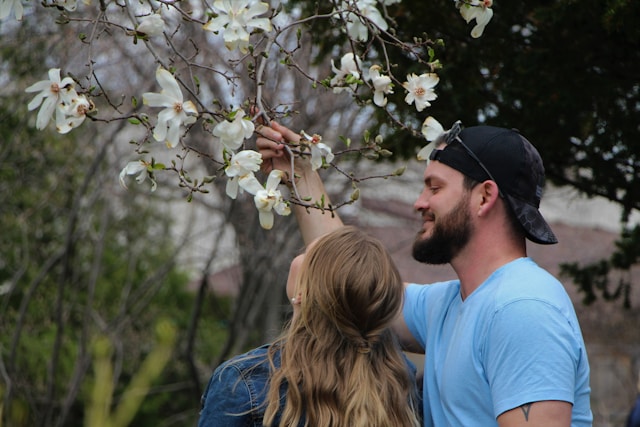
It’s easy to become enmeshed in the never-ending quest for more in the frenzy of our everyday lives. More achievements, more wealth, more success—the list seems never-ending. Even with all of the hustle and bustle of the modern world, there is one timeless fact that never goes away: it is crucial to recognize the value of what we already have before life teaches us how to treasure it”Love What You Have, Before Life Teaches You To Lov – Tymoff”,.
The Danger of Neglect and the Allure of “More”
A basic driving force in human nature is the desire for advancement and improvement. We are driven to push limits, make big plans, and pursue excellence because of it. But this desire can turn into an obsession with the next “big thing,” making us lose sight of the importance of the things we already own.
We grow accustomed to our routines’ security, our families’ love, and the comfort of our belongings. Once these gifts are no longer new and exciting, they become a familiar background noise that is easily taken for granted. We focus on the things we don’t have, the things we think are lacking from our pleasure, and we ignore the diverse array of relationships and experiences that are already a part of our lives.
Lessons from Life: A Tough Instructor But a Priceless Mentor
But life has a strange way of bringing us back to the real priorities. Adversity frequently fosters a deeper appreciation for life’s positive aspects. A severe wake-up call could come from the untimely death of a loved one, an unanticipated health crisis, or a personal setback. We are forced to face the transience of life and the frailty of the things we hold dear by these difficult events that peel back the layers of complacency.
We are forced to reevaluate our priorities when faced with difficulty. Things that were once insignificant become extremely important. The security of a well-established schedule, the resolute assistance of close ones, and the basic happiness of a sound body – these gifts, when disregarded, turn into sources of inspiration and fortitude “Love What You Have, Before Life Teaches You To Lov – Tymoff”.
Developing Gratitude as a Countermeasure to Neglect
Fortunately, we don’t have to wait for life’s more difficult lessons to develop a thankful mindset. Through the integration of deliberate routines into our everyday existence, we can develop a profound gratitude for our possessions, leading to increased contentment and satisfaction.
Practice Mindfulness: Being mindful involves learning to focus our attention on the here and now without passing judgment. We become more conscious of the small pleasures that are frequently overlooked when we set aside a short period of time each day to just enjoy the beauty of the world around us, enjoy a mouthwatering meal, or feel the warmth of the sun on our skin.
Regularly express gratitude to people who make your life better by saying “thank you.” Tell a friend how much you appreciate their listening ear, tell your partner how much you appreciate their constant support, or just tell your family how much you love them. Gratitude is an act that improves relationships and highlights the good things in life.
Maintain a Gratitude Journal: Take a few minutes every day to list all the things, no matter how minor, for which you are thankful. It is a potent reminder of the abundance all around you to read these entries again on difficult days.
Embrace Imperfection: Life is often made interesting by our flaws, imperfections, and apparent shortcomings. Acknowledge the singular path you are pursuing and concentrate on advancement rather than flawlessness.
The Ripple Effect of the Power of Appreciation
We not only improve our own lives but also uplift people around us when we practice appreciation. When we show gratitude for the blessings in our lives, we create a happy atmosphere and encourage optimism. Relationships become stronger and deeper when we show gratitude to the people in our lives.
Furthermore, having gratitude makes us more resilient when faced with obstacles. Knowing that we have the means and support to endure life’s challenges makes us more resilient when we acknowledge the abundance in our lives.
Wrapping Up: An Unusual Life
“Love What You Have, Before Life Teaches You To Lov – Tymoff”,Life is an invaluable gift, a tapestry woven with strands of happiness, grief, success, and hardship. In addition to enhancing the present, choosing to be grateful for what we have helps us develop a stronger sense of meaning and purpose in life. While chasing “more” will always have its appeal, real happiness comes from appreciating the remarkable in the everyday. So, today, take a time to scan your surroundings, recognize the gifts you already have, and accept the remarkable life you lead.
FAQs on Learning to Be Thankful for What You Already Have: 13.
- What makes taking things for granted so simple?
Because it keeps us driven to survive and grow, our brains are hardwired to concentrate on what we lack. We may fail to notice the positive aspects of our life as a result of this.
- How may hardship instill thankfulness in us?
Challenges have the power to peel back the layers of complacency and make us value the things we might otherwise take for granted, like our well-being, our relationships, or a reliable schedule.
- How can one practically practice cultivating gratitude?
Mindfulness: Appreciate the simple pleasures in life, such as a satisfying meal or the sun’s warmth.
Give thanks: Tell individuals you appreciate them, write them a message of appreciation, or just thank your loved ones for their support.
Keep a gratitude notebook and record any small or large blessings you receive on a regular basis.
Accept imperfections: Put progress ahead of perfection and value your individual life’s path.
- How can being grateful for what we have affect our happiness?
Having gratitude makes us happier and more fulfilled because it improves our relationships, builds optimism, and serves as a reminder of the richness all around us.
- Does having gratitude for what we have strengthen our resilience?
Acknowledging the positive aspects of our existence gives us a better base on which to confront difficulties. It gives us the strength to endure adversity when we know we have resources and support.
- Is aiming for more intrinsically harmful?
No, what propels things forward is the desire for advancement and better. It’s crucial to strike a balance between wanting more and being content with what you already have, though.
- What kind of impact may gratitude have on others around us?
One cannot contain gratitude! When we show others gratitude, we uplift their spirits and establish a sense of community while fortifying interpersonal bonds.
- What are some widespread misunderstandings regarding gratitude?
It is possible to be thankful for what you have while still making efforts to better your life. Being grateful does not imply neglecting issues.
Acknowledging the positive aspects of life, especially in the face of adversity, is the essence of gratitude.
Being grateful takes constant work and intentionality; it is not a one-time event.
- How can a busy life be balanced with appreciation practices?
Little everyday actions can have a significant impact. Before going to bed, make a list of the things you are grateful for, tell someone you care about, or begin each day with a few minutes of focused appreciation.
- Is there a religious basis for gratitude?
Although it can be a spiritual practice for some, gratitude is a universal human experience that transcends all religions.
- What if I’m having trouble feeling appreciative?
It’s common to occasionally feel pessimistic. Concentrate on little things that make you happy, then progressively expand on those emotions. If continuous negativity is plaguing you, think about getting treatment from a therapist.
- What tools or applications are available to me to practice gratitude?
Yes, indeed! You can practice gratitude by using one of the many applications or internet tools dedicated to this practice.
- What is the best way to assist kids in cultivating a thankful mindset?
Encourage children to recognize and value the positive aspects of their lives, set an example of thankfulness for them, and provide them with chances to give back to the community.







